1960s
Conception Days Indicator
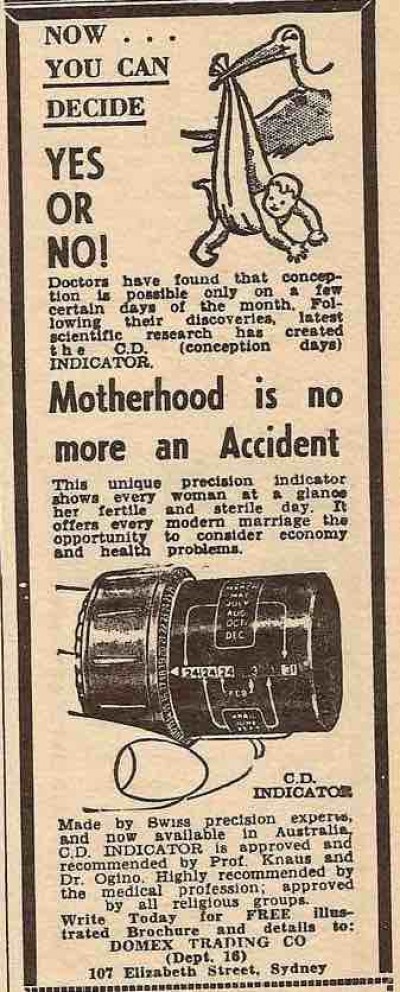
It's the Swiss engineering that sold me!
Original ad here. (Page 55.)
Posted By: Paul - Mon Feb 01, 2016 -
Comments (5)
Category: Technology, 1960s, Pregnancy
Mystery Illustration 15
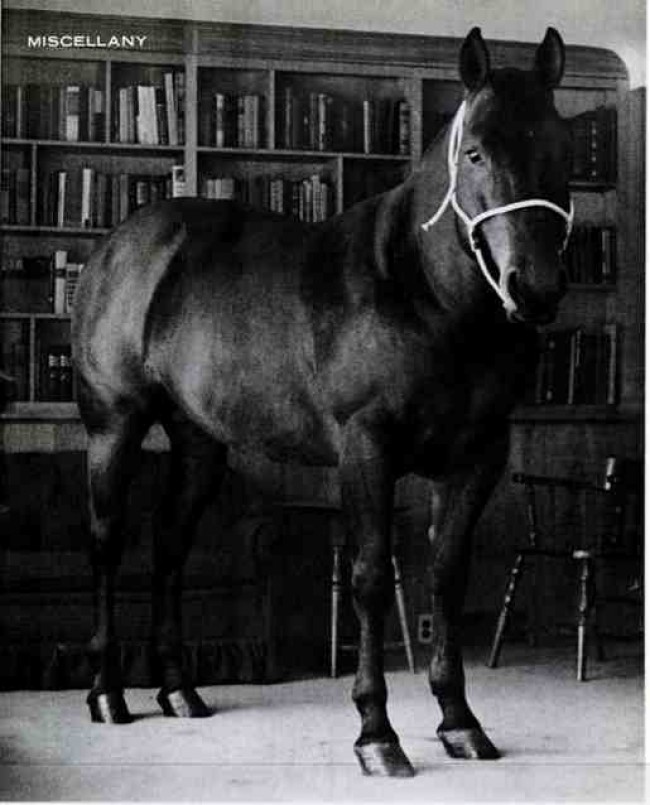
Why was this horse brought inside a house, if not just as a photo stunt?
The answer is here.
Posted By: Paul - Sun Jan 31, 2016 -
Comments (8)
Category: Animals, Interior Decorating, 1960s
Anti-Aircraft Dumpling Cannon
February 1967: Munich resident Helmut G. Winter was sick and tired of the noise of military aircraft flying low over his house. So he built a catapult and started launching Bavarian potato dumplings at the planes.In one week he launched 120 dumplings. He never managed to score a direct hit. But eventually both the West German Luftwaffe and American pilots conceded defeat and agreed to a flight path that avoided his house.
Reportedly, he gave the Americans a model of his dumpling cannon as a gesture of thanks, inscribed "As a souvenir and a warning — Helmut G. Winter, The Bavarian Dumpling Shot." I bet this model has now been lost or thrown away, instead of being in a museum where it belongs.

Cincinnati Enquirer - Feb 20, 1967
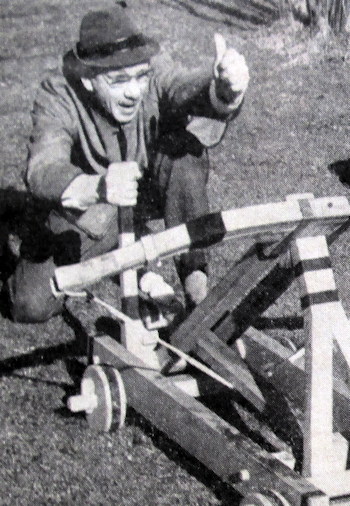
Newsweek - Mar 13, 1967

Newsweek - Mar 13, 1967
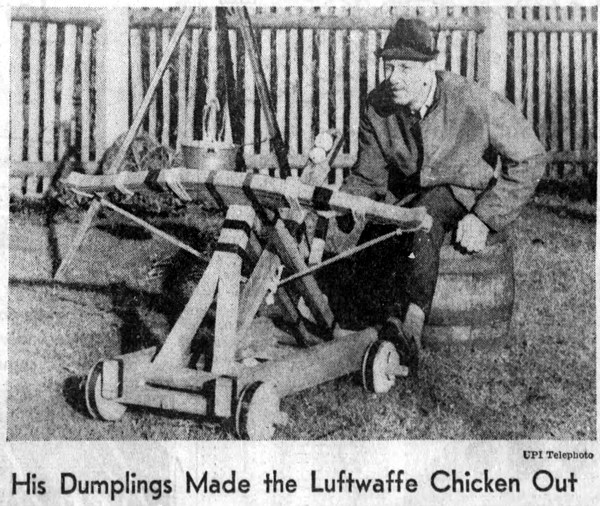
St. Louis Post-Dispatch - Mar 1, 1967
Posted By: Alex - Sat Jan 30, 2016 -
Comments (7)
Category: Military, 1960s, Weapons
Smoking Periwinkle

Can smoking periwinkle actually get you high? Probably. Over at erowid.org there are some reports of people experimenting with it. Though despite the scare of 1967, it never caught on as a popular drug.
Dr. George Dame, a health officer in Manatee County, warned that periwinkle could have all kinds of unpleasant side effects (such as "withering of muscle tissue") because periwinkle is the source of some drugs (vinblastine and vincristine) used in chemotherapy. However, an expert on those drugs disagreed with him. From Newsweek (June 26, 1967):
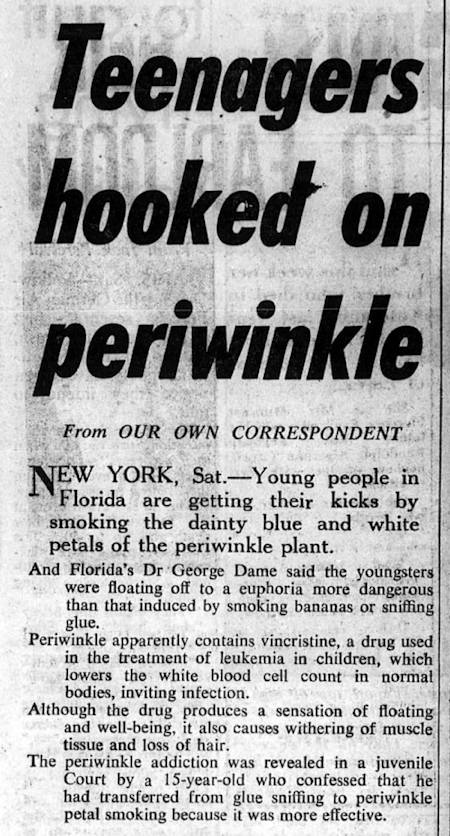
Sydney Morning Herald - Jun 4, 1967
Posted By: Alex - Fri Jan 29, 2016 -
Comments (9)
Category: Drugs, Psychedelic, Smoking and Tobacco, 1960s
Training Table Bread

Original ad here.
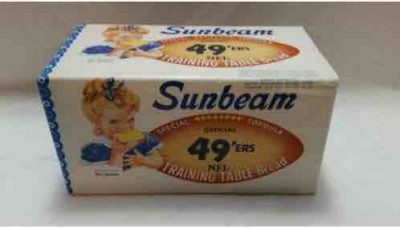
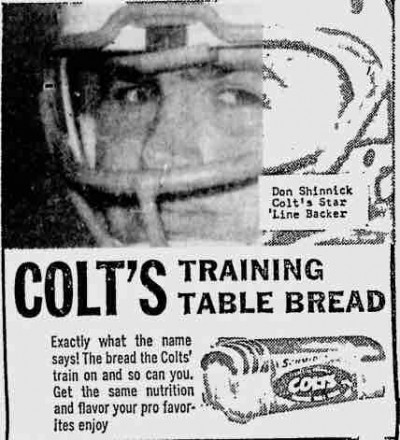
Original ad here.
It seems that circa 1962, pro football and the bread companies decided to engage in some mutual branding, offering loaves of bread of the same kind ostensibly enjoyed by the players. It seems likely that all these loaves emerged from the same factory and got a different team name slapped on them depending on their destination. Not much difference between brands of sliced whited bread to begin with, after all.
I am surprised the current-day NFL has not picked up on this, especially with the Superbowl coming up.
Posted By: Paul - Thu Jan 28, 2016 -
Comments (8)
Category: Food, Sports, 1960s
Sex Cracks

Source of image: Grandchild's blog.
In vain have I searched for SEX CRACKS on YouTube. But there are plenty of other RG clips.
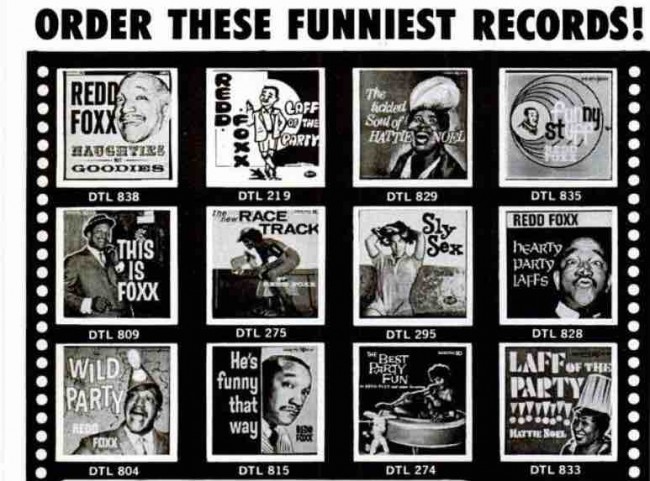


Original ad here.
Posted By: Paul - Tue Jan 26, 2016 -
Comments (5)
Category: Humor, Music, Sexuality, Stereotypes and Cliches, Bohemians, Beatniks, Hippies and Slackers, 1960s
Mystery Illustration 14
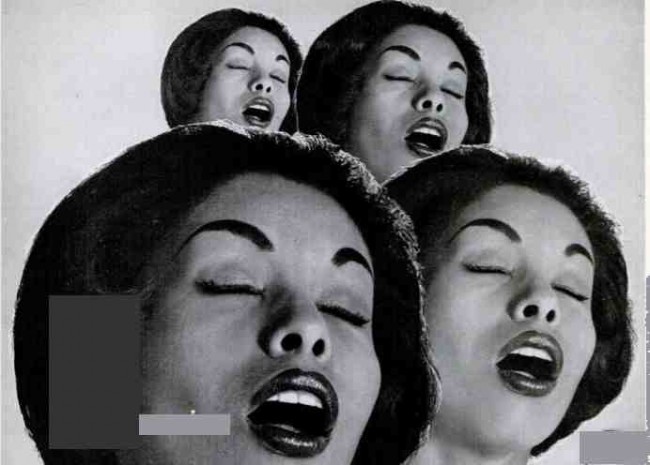
What orgasmic product was this illustration touting? Vibrators? Lingerie? Diamond rings?
The answer is here.
Posted By: Paul - Sat Jan 23, 2016 -
Comments (5)
Category: Advertising, 1960s
The Electric Shopper Car
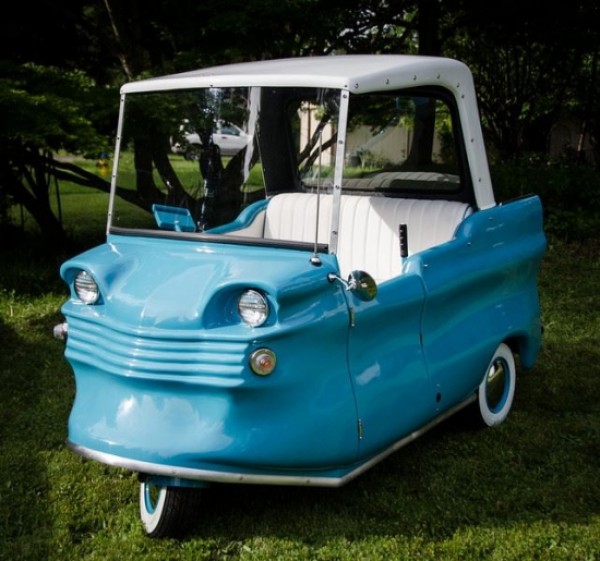
Full story here.
Posted By: Paul - Thu Jan 21, 2016 -
Comments (12)
Category: Inventions, Technology, 1960s, Cars, Yesterday’s Tomorrows
The minister who didn’t leave
Jackson, Mississippi. 1966: Rev. Dennis McDonald, being a new preacher in town, visited local residents with his two sons to invite them to his church. But he was shocked (shocked!) when he paid a visit to Mrs. Pendergrass and found her sunbathing outside in her birthday suit. Naturally he had to report her to the police, who fined her $50.But Mrs. Pendergrass appealed the fine, and the court took her side, noting that a) she was on her own property, not in public; and b) if the minister was so shocked, why did he hang around at her house for 45 minutes?
You can read the court case here: MRS. ROY C. PENDERGRASS v. STATE OF MISSISSIPPI.

Kokomo Morning Times - Dec 20, 1966
Posted By: Alex - Wed Jan 20, 2016 -
Comments (12)
Category: Law, 1960s
Little Brother
In 1967, Creative Playthings began selling the French-made "Little Brother" doll in America. It was an anatomically correct baby boy doll designed to encourage "acceptance of body differences."However, some American mothers regarded the thing as an abomination and protested to have it removed from the market. Said one protester, "We believe children should not relate sex organs with play. We think this is carrying 'educational' playthings too far."
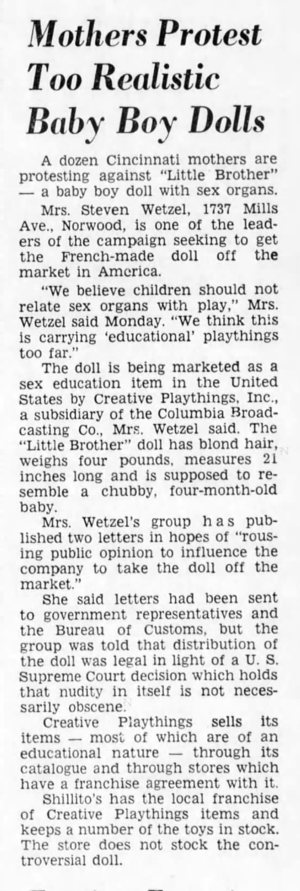
Cincinnati Enquirer - Nov 7, 1967


Frank Caplan, founder of Creative Playthings, with "Little Brother"
Newsweek - May 29, 1967
Posted By: Alex - Tue Jan 19, 2016 -
Comments (6)
Category: Toys, 1960s

| Who We Are |
|---|
| Alex Boese Alex is the creator and curator of the Museum of Hoaxes. He's also the author of various weird, non-fiction, science-themed books such as Elephants on Acid and Psychedelic Apes. Paul Di Filippo Paul has been paid to put weird ideas into fictional form for over thirty years, in his career as a noted science fiction writer. He has recently begun blogging on many curious topics with three fellow writers at The Inferior 4+1. Contact Us |




